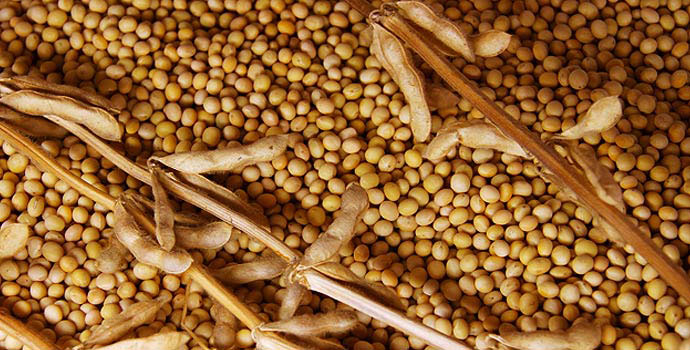
A group of farmers from Western Kenya has started processing among others sossi yoghurt, flour and beverages from soya beans as a solution to the smaller quantities of their produce which were going to waste due to rejection by a high volume buying company.
The farmers pooled together under Mumias District Federation of Soya beans Farmers group (MUDESOF) were introduced to soya beans farming by Promassidor the manufacturers of the now famous household delicacy Sossi.
“The firm approached us in 2010 and offered us the initial farm inputs including certified seeds, fertilizers and knowledge on better husbandry practices,” said Stephen Kasamani, the group leader.
RELATED ARTICLE: New sunflower and soyabeans market opens up for Kenyan farmers
Though the firm’s entry into the Kenyan market brought the much needed relief to the farmers by introducing Soya beans as an alternative to sugarcane which has dominated the area, the farmers have been finding it difficult to all their produce due to standard and logistic challenges.
“We started the value addition projects due to the fact that sometimes, there were remainders of the Soya harvests in small quantities that could not be transported to Promassidor’s factory in Nairobi,” said Kasamani.
Although Promassidor accepts any quantity of the right variety of Soya bean in Nairobi, the transport modes they send to the field only carry bulk purchases like five tonnes. Farmers have to therefore look for alternative markets for the remaining harvest.
The local markets provide about Sh30 per kilo a price that is half of what Promassidor offers which according to him, translates to a total loss to a farmer hence the birth of the small scale value addition industries.
RELATED ARTICLE: Farmers milk fortunes adding value to soyabeans
Starting off in value addition
To kick off this project, most of the farmers had to go through regular trainings on these ventures from other development organizations through Kenya Industrial Research Development Institutes (KIRDI) from time to time for a period of six months.
After knowledge acquisition, the farmers are now championing a new breed of more nutritious products from Soya although they produce on a small scale.
“Our market is slowly expanding although financial constraints are still deterring us from the purchase of the state of art Machines to expand production,” explained Kasamani.
According to Kasamani although their group is producing numerous products from Soya beans, three distinctive products have emerged and command a higher demand from their clients.
“Composite flour which is a mixture of soya and finger millet is fast moving due to it being ideal for patients and babies. Our Soya beverage is also fast moving and some clients confess to it being superior quality as opposed to other similar products in the market,” he explained.
The group sell most of their products to the local markets and consumers who visit the production site shops to buy or place orders.
RELATED ARTICLE: Western households go commercial with soya cultivation
Employment opportunities
Despite the pitfalls, the group is creating a ray of hope for many people in the area as the projects are creating employment opportunities for individuals in the region. Many youths in the area are involved in the production chain process especially during the harvest time.
“Although we have casual workers, we are giving them a chance to make ends meet at a time when unemployment especially among the youth has hit record highs. During the peak season when many farmers are harvesting, we employ directly and indirectly over 300 people who include the factory workers, suppliers, marketers among others.”
To meet market demands and acquire other certifications paper work from standardization bodies like Kenya Bureau of Standards, the group is in discussion with KIRDI Malava, Kisumu or Bungoma to use their modern machines which were installed by United Nations Industrial Development Organization (UNIDO).
“We are negotiating to see that we can produce our products using their machines which are up-to date. He explained that the deal should be sealed in the near future because the machines were installed by the government under an arrangement that their projects runs for three years after which the machines are handed to the farmers to conduct value addition.”
Currently the Soya value addition projects in the area do not threaten the interests of Promassidor according to Kasamani.
“We are processing about one percent of our season’s harvests and 99 percent is delivered to Promassidor. We just opt to process it if its’ surplus or left behind due to logistical challenges. We do not have capacity to compete with them and that is why they also encourage us to do the same,” he explained.
In fact to the contrary, Kasamani argues that they are promoting Promassidor products like Sossi because they encouraging the masses to consume Soya products.
“When the population accepts our Soya products then it makes it easy for Promasidor to access the market because the locals already know the health benefits of Soya products,” added Kasamani.
Similar sentiments were expressed by Inyani who noted that they have to empower the farmers so that the country realizes the full potential of the benefits from Soya beans.
















Comments powered by CComment